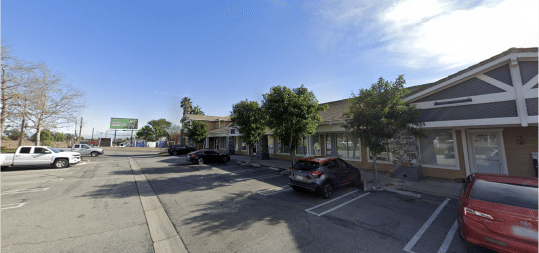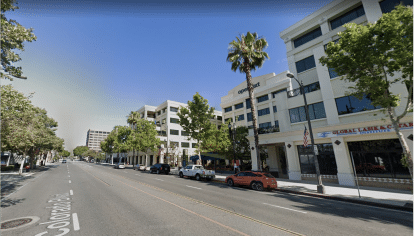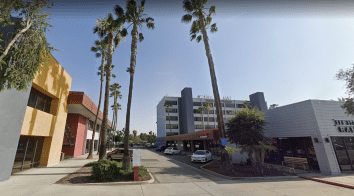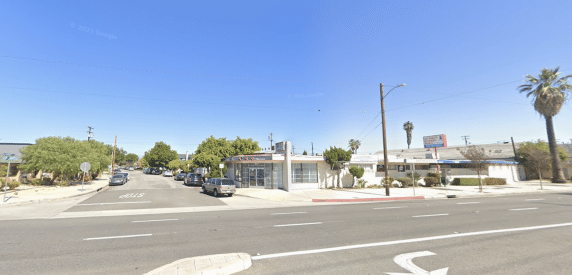
If you’ve been arrested in Garden Grove, you will most likely have to post bail or have someone else do it for you to secure your release. Posting bail allows you to walk out of jail and gives you ample time to reach out to a lawyer and build a solid defense strategy that would lead to a charge dismissal or reduction.
You have probably heard about posting bail in the news or TV shows, meaning you have an idea of how it works. However, the bail posting process entails more than what you see in the movies. That’s why you want to seek professional assistance from a bail bond company. When working with a bonds company, you’ll learn everything concerning bail and bail bonds and be guaranteed a smooth jail release. At Cali Bail Bonds, we’re devoted to offering quick services for our clients’ release. Please call us today to set up an appointment and receive a reliable and straightforward bail solution.
Bail is the money that acts as security between a defendant and a court. It guarantees that the accused will go to all court proceedings concerning their case and comply with other imposed conditions for a jail release. This money remains with the court until the defendant’s case is resolved, and if they showed up in court on all the required dates, it would be returned to them.
Bail isn’t meant to be a punishment in itself. Rather, it’s a way to ensure an accused’s agreement to go to court and obey various conditions. Essentially, bail is like collateral you leave with the court to ensure that once you’re released from custody, you’ll go back to court for the proceedings until your case is resolved. If you don’t go or violate the conditions for your release, you may lose the bail amount. If you posted a surety bond, the bonds agency loses the money.
In Garden Grove, bail is set by a judge during the first court appearance after your arrest, which could be either an arraignment or bail hearing. After an arrest and before bail is set, you'll be taken in for booking. Booking entails recording critical information such as your name, mug shots, fingerprints, and other personal info. The officer in charge of the booking will also conduct a warrant search to see whether there are any outstanding warrants and confiscate your personal effects. You will also undergo a general health screening to ensure you’re neither a threat to the officers or other suspects being held nor need immediate medical care. Lastly, you'll undergo a full-body search to ensure you haven't brought any drugs or weapons into the holding cell.
After booking, you'll be placed in jail or a holding cell to await arraignment or bail hearing where the judge will set bail. Judges usually comply with standard practices when setting bail, for instance, setting the bail amount per the bail schedule. However, judges may lower or raise the standard bail amount or waive bail entirely and grant OR release based on various factors.
Apart from the severity of the supposed offense, the bail amount usually depends on factors like your prior criminal history, whether you're employed, and whether you have close ties to the community and relatives. Other factors include whether you are a flight risk, the probability that you'll attend court, and whether you're a danger to the public.
The judge has the right to deny you bail altogether. If you're denied bail, you'll have to stay in jail until your case is resolved. In many cases, the judge denies bail if the defendant is deemed a flight risk or threat to the public. How severe your crime is will also determine whether you will be granted or denied bail. If you've been accused of a severe crime like murder with special circumstances, or any other crime punishable by death, the judge may deny you bail.
If the judge agrees to grant bail or release you OR, they can impose various conditions. Your lawyer may also recommend conditions to persuade the judge to set bail, reduce the amount, or release you OR. There are general conditions the judge may set while others are specific to your case. They include the requirement to:
There are three primary ways to post bail in Garden Grove— cash bail, a bail bond, and a property bond. By cash bail, it means you'll have to deposit the whole bail amount in cash to the court's account. Some courts will allow you to write a check of the required bail amount.
Should the police, prosecutor, or judge believe you feloniously obtained the money you used to make cash bail, they'll likely not release you until the issue is resolved. Feloniously Acquiring money means you received the money through illegal means, behavior that amounts to a felony offense, or unlawful transaction.
You have to show that you obtained the bail money legally for the judge to accept it. If you don't, your cash bail will be rejected, and an investigation may be opened to establish the source of the money.
Thus, even if you have money to pay cash bail, working with a bail bond company is advisable to keep a lower profile, particularly if you've been accused of a high-profile drug-related crime, such as drug trafficking. That way, you won't experience the worry that accompanies the constant inspection of your bank accounts by the court.
When you lack the funds to post a surety bond or cash bail, you can use your asset to make bail. Here you pledge your property's value to the court as insurance that you'll attend court. The worth of the property you are giving as the bond must be at least twice the entire bail value. For instance, if your bail is $20,000, the property value must be at least $40,000. Before the judge accepts a property bond, they must schedule a hearing in which they'll establish the legal owner of the asset you're offering and its value.
You have to provide these documents if you wish to post a property bond:
If you fail to appear as required, the court will sell the property to recover the bail amount. But if you make all court appearances, the property will be given back to you.
You hire a bail bonds company to post the bond for you with a bail bond. Because most people can't post a property bond or cash bail in Garden Grove, they choose this bail posting method. Securing a bail bond may take as few as twenty minutes, based on the office location of the bonds company helping you out. However, it often takes half an hour to three hours for you to be released from custody after posting bail. A bail agent will agree to post bail for you, and in exchange, you'll pay them a fee that's usually 10 percent of the total bail value. For instance, if your bail is 50,000 dollars, your fee will be 5,000 dollars. This fee is known as the premium, and it’s not refundable.
However, some bonds companies offer discounts depending on various factors. For example, you may receive a discount and pay an 8% premium if you're:
The contract you sign with the bondsman remains valid for a minimum of one year. If your case goes past this period, you'll likely be required to pay another premium. Moreover, contract terms vary across bail bond companies. You should therefore consult with your bondsman concerning the terms before entering into any agreement.
Some bail bonds companies demand collateral before they post bail for you. The collateral acts as insurance to the bail amount you're supposed to pay. A wide variety of items can be accepted as collateral based on their condition and value. Common ones include:
A cosigner may be required during the bond process to guarantee that you'll attend your scheduled court dates. A cosigner vouches for you and ensures you have support on the outside to attend the trial. Anyone who knows you can cosign the bond. The stronger the relationship, the highly likely the bail agent will be inclined to accept the cosigner. Your family member, spouse, co-worker, and friends are often a good choice for a cosigner.
If you intend to cosign a bond, you need to be sure what you’ll be involving yourself in beforehand. Most individuals have found themselves in trouble for agreeing to be cosigners because of not knowing what's required of them. Here are the various things you should know if you agree to cosign a bond:
If you agree to cosign a bond, you consent to be accountable if the defendant doesn't attend court. Therefore, you have to make sure the accused goes to all their court dates, failure to which the bail agent will forfeit the bail amount, and they'll require you to compensate them the amount. Therefore, you risk losing your property after the bondsman sells it to recover the bail money.
You'll also have financial responsibility toward the bond payment. By this, it means you'll be the one to pay the bond fee. Do not expect the bail agent to give this money back after the defendant's case is over since it's non-refundable. If the collateral is necessary, you'll be the one to provide it. If the accused does not attend court, the bonds agency will sell the collateral to recover the bail money.
Some individuals assume that a cosigner's obligations end with the initial court hearing. However, you are responsible all through the entire court proceeding. You have to stay current with the case’s progress to ensure the defendant appears on all court dates.
If you’re sure the defendant won't oblige with the court conditions, you can speak to the bail agent to cancel the bond. Once you cancel the bond, you'll be freeing yourself from any criminal or financial obligations. However, the disadvantage of canceling the bond is the accused will be rearrested. They may then have to remain in custody until their case is resolved.
You and your cosigner are bound to make various mistakes when working with a bonds company to post your bail. These mistakes could jeopardize the possibility of being released, and that is why you have to try avoiding them. Common mistakes you should avoid when working with a bail bonds company include:
We have so many bond agencies in Garden Grove that help you post bail. However, only very few of these can meet your expectations. The following are tips that will help you reduce the stress of finding a reliable company to post bail for you:
Selecting a bonds agency with a positive relationship with the authorities and your lawyer and one with a stellar reputation will ensure a smooth release from jail.
Securing your release from jail is significantly dependent on your cosigner's reliability, for example, if they're capable of paying the premium. Thus, choosing a reliable person to cosign your surety bond is critical as it ensures instant approval of the person, which secures a quick release.
Go for a cosigner with a good job and credit history who can pay the bond fee and provide collateral to guarantee the bond. Also, the cosigner should agree and be comfortable with the bail agent's conditions. Bail agents consider a cosigner who does not have a residence or stable job a risk and therefore won't approve of them. Choosing the right individual to cosign your bond ensures you no longer stay in jail.
Before agreeing to post a bond, every bail agent must ask defendants and cosigners various questions. These questions are meant to determine whether or not you can meet the bond requirements. For example, the agent may ask you to provide your address and workplace. Giving the correct information to the bail agent is crucial to avoid bond revocation in the future. If the bail agent revokes your bond, you may be rearrested. To be released, you may have to sign another bail bond contract, meaning you'll have to pay another premium.
Garden Grove City Jail
11301 Acacia Pkwy
Garden Grove, CA 92840
Phone: 714-741-5704
Orange County Sheriff Department Central Jail Complex
550 S Flower Street
Santa Ana, CA 92703
Phone: 714-647-4666
Theo Lacy Facility
501 The City Dr. S
Orange, CA 92868
Phone: 714-935-6940
West Justice Center
8141 13th St
Westminster, CA 92683
Phone: 657-622-5900
Central Justice Center
700 Civic Center Dr. West
Santa Ana, CA 92701
Phone: 657-622-6878
If you wish to seek a bail bond service so you can secure your release from jail in Garden Grove, Cali Bail Bonds is the go-to. The process of acquiring a bail bond is more straightforward than you might think. It can only be complicated if you're dealing with an inexperienced bail agent. But if you're dealing with our experts and knowledgeable bail agents, all you have to do is contact our agency and let them do the work of securing your release. Before you know it, you'll be out of jail and back to your daily activities. Contact us at 562-376-5476 to learn more on how we may help you.
"*" indicates required fields






